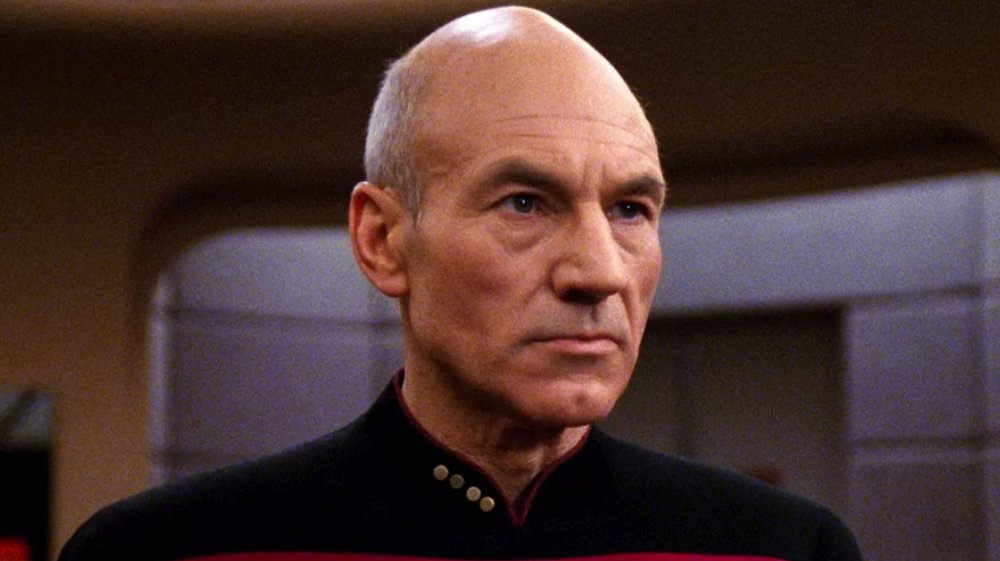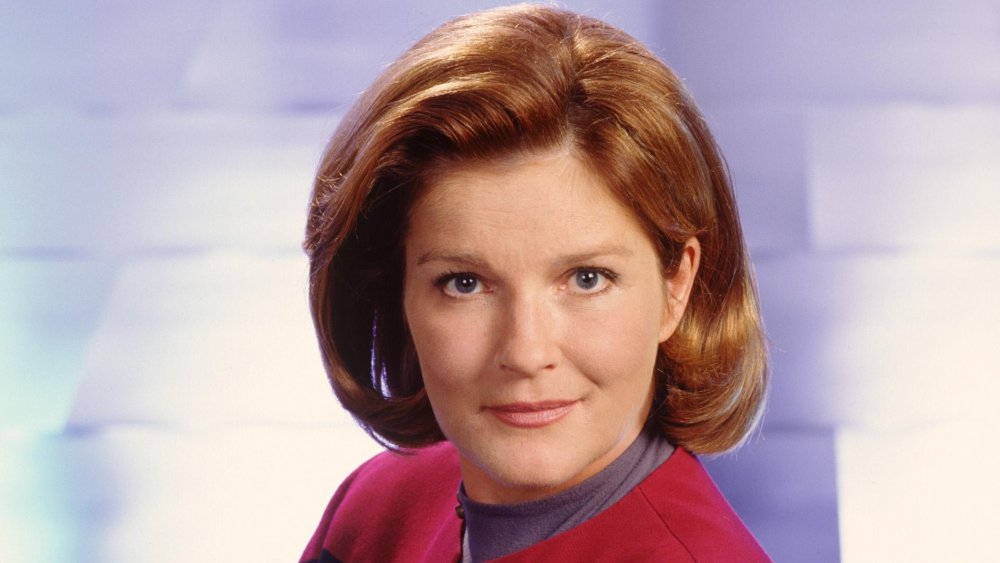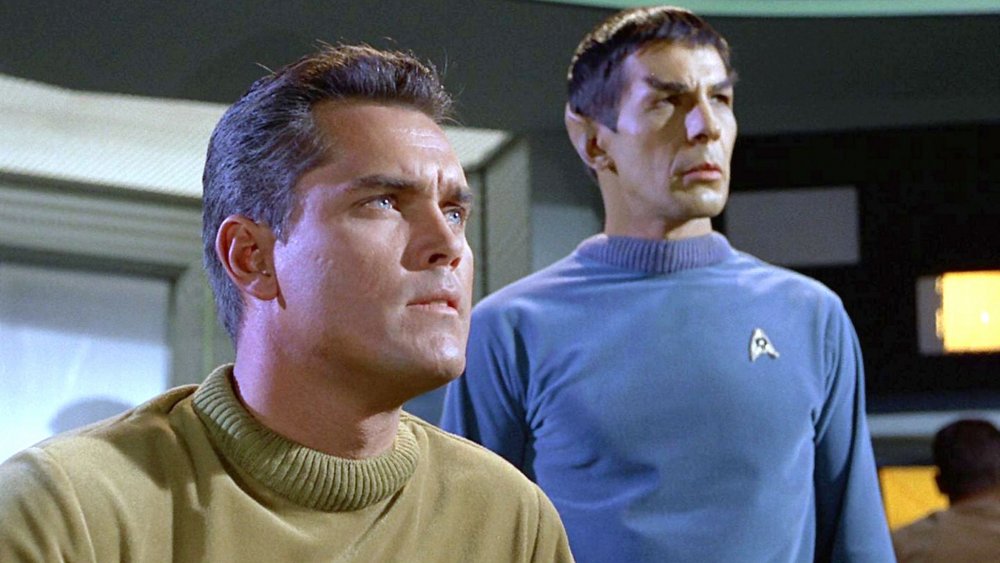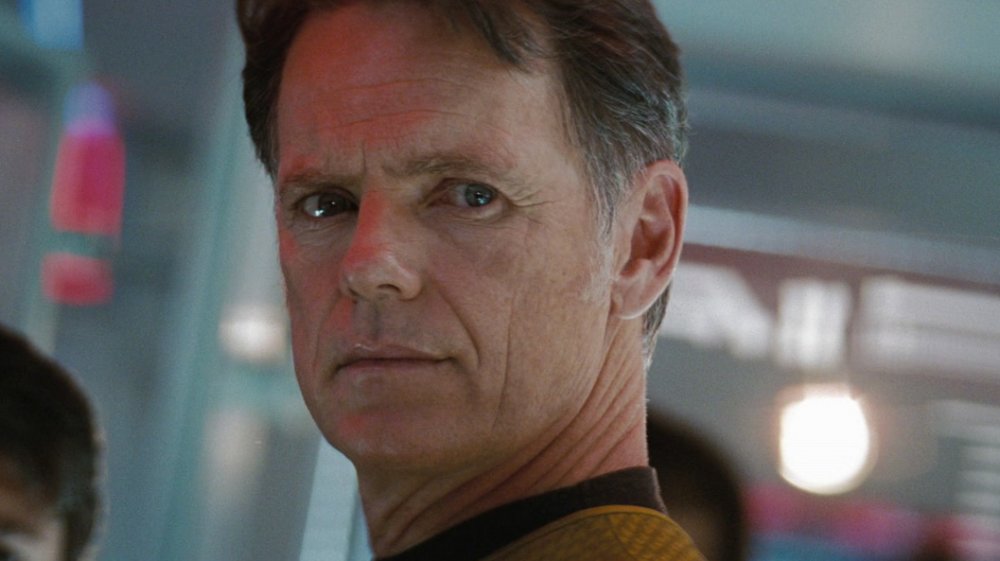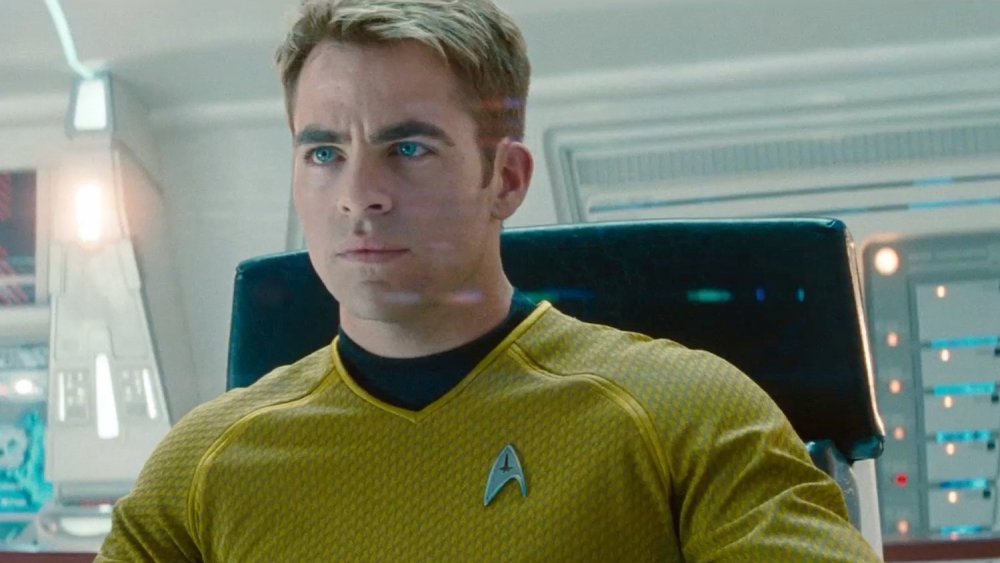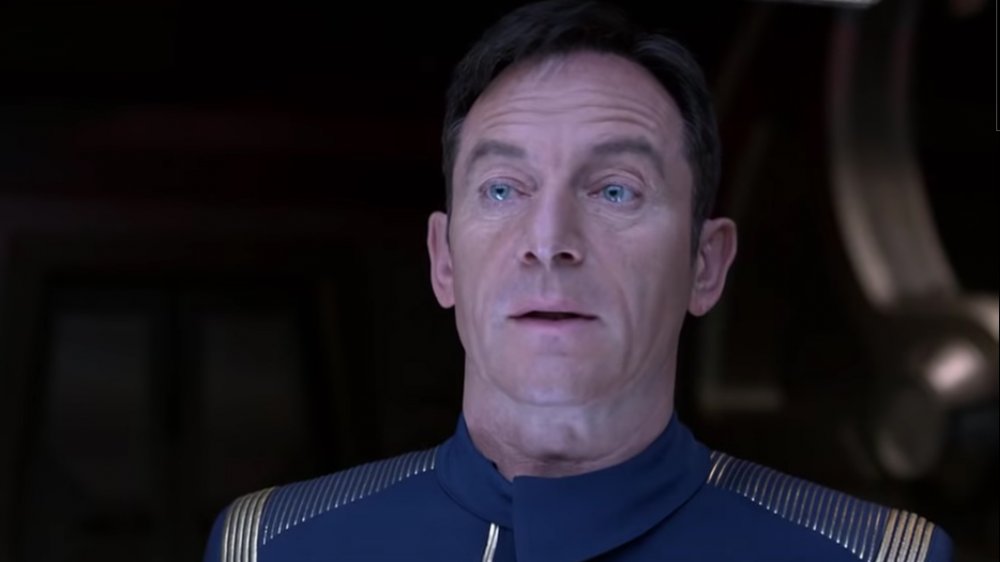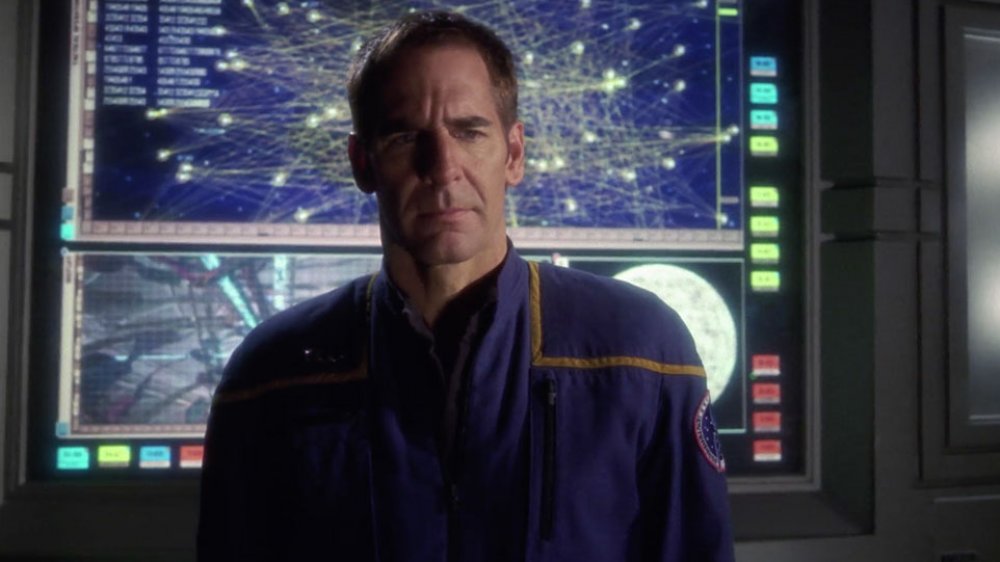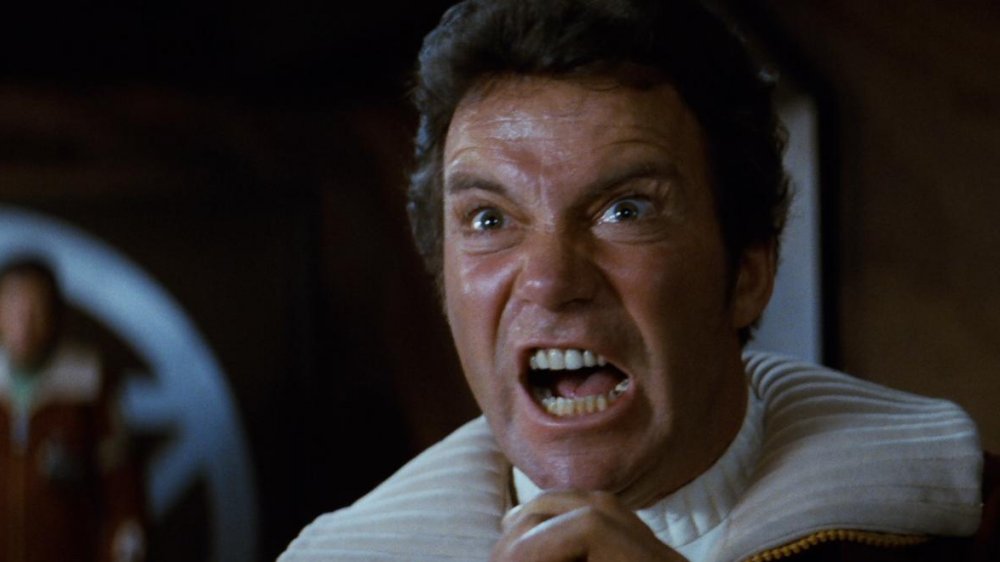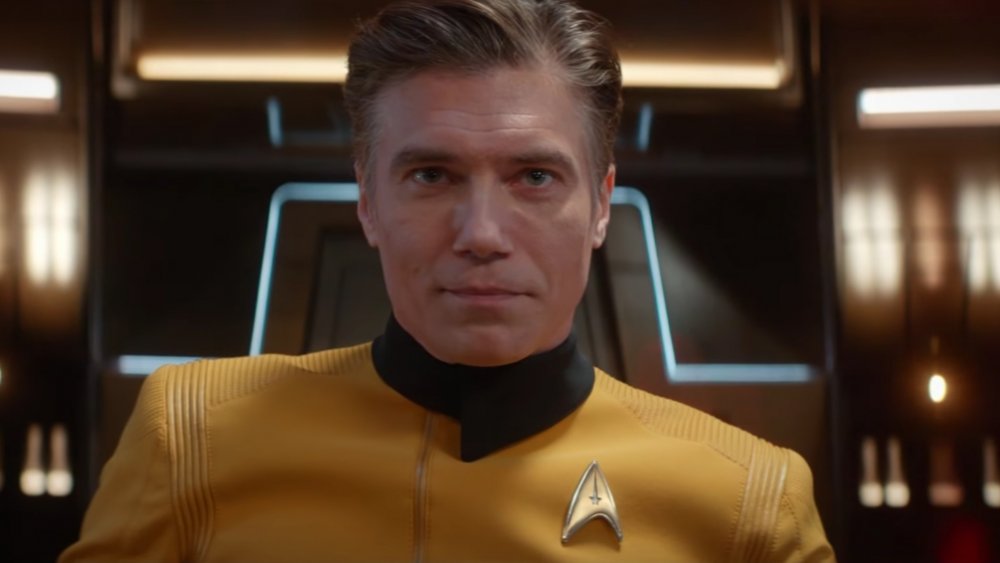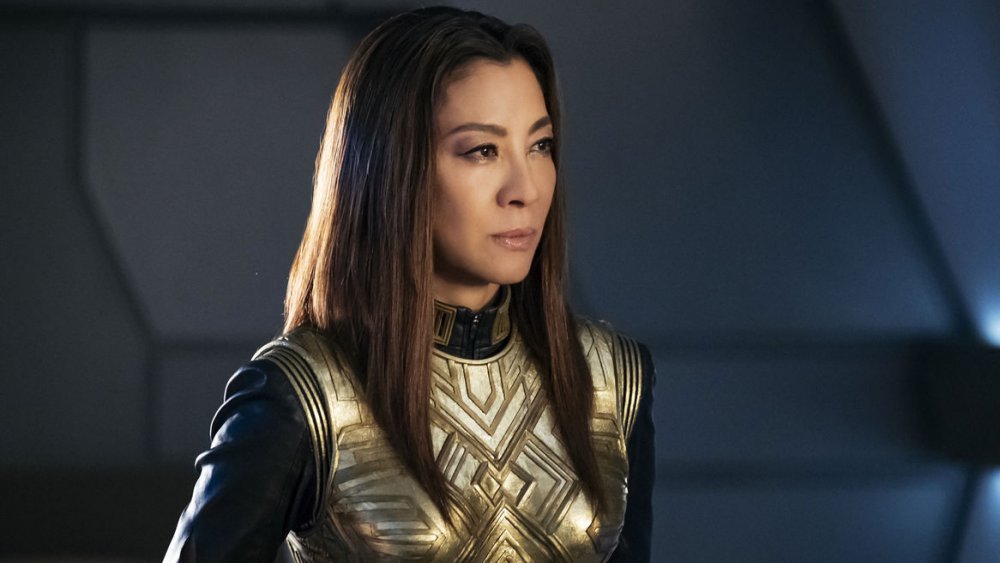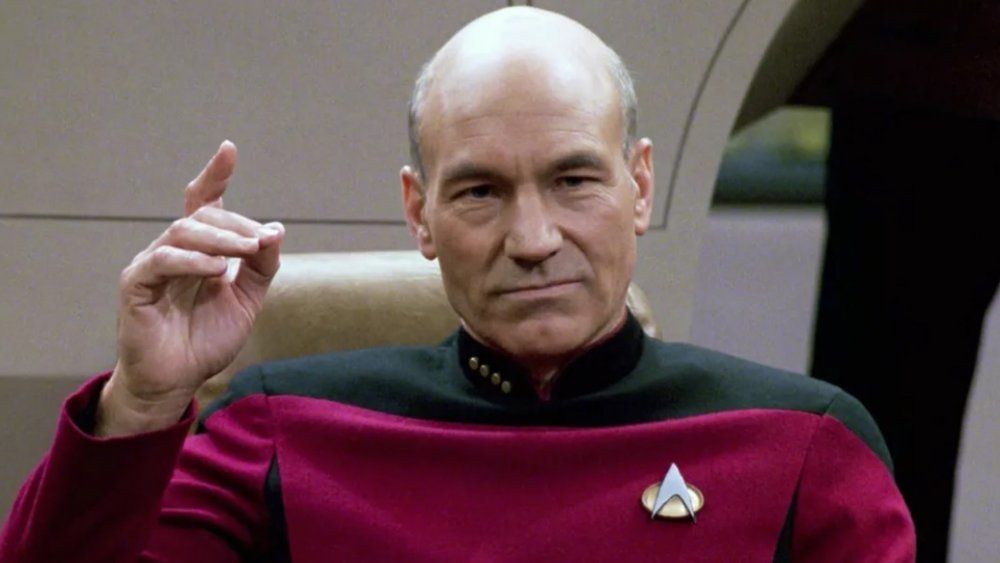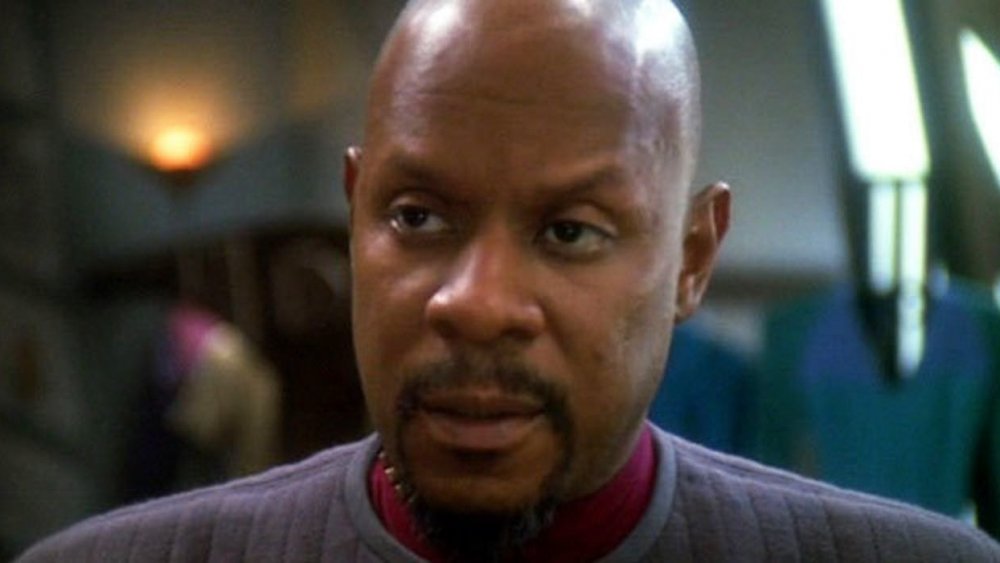Every Star Trek Captain Ranked Worst To Best
There are questions that history's greatest minds have long assumed could never be answered. "How many angels can dance on the head of a pin?" "If a tree falls in the woods, and nobody is present, does it make a sound?" "Which Star Trek captain is the best?"
Well, "maybe one, but it would hurt," "yes," and "we've got you covered" are the answers, respectively, but the third answer is definitely the most complicated. Star Trek has been, in one form or another, in near constant production since it first aired in 1966. Over the course of seven series, 13 movies, hundreds of novels, and three official themed cruises, the various commanding officers of the franchise's ships and space stations have vied for our nerd affections with bestial aplomb. Here, we'll take a deep, objective look at six decades of Star Trek history to decide, categorically, which Starfleet captains did and did not suck real hard. Let's start at the bottom and work our way forward, keeping in mind that all of these rankings are backed by scientific study and that this puts the whole subject to bed once and for all.
Captain Kathryn Janeway in Star Trek: Voyager
Coming in at number terrible is one Captain Janeway of the USS Voyager, the only member of this list to get their crew stuck in the inky blackness of space and not get them home for seven whole seasons.
Janeway, portrayed by Kate Mulgrew of Orange is the New Black, had a long road ahead of her from day one. She was the first female captain headlining a Star Trek series, and nerds aren't famous for loving change. Then, with that super unfair strike already against her, she took command of the ship just before it was sucked through the Array and spit out 70,000 light years from home.
But how would you make lemonade if the universe didn't chuck a couple of lemons your way? And yes, she was right. The powers in control of the Array posed a very real threat to the Ocampa. But instead of technobabbling a time bomb together, setting it to "as soon as we leave," and heading back home in time for whatever the post-capitalist version of happy hour is, she blew up her only way back on the spot and condemned the folks under her protection to a long and arduous journey. Combine that with the fact that it took two of her to beat the Borg when it's only ever taken one Picard, and you've got yourself the bottom of the barrel.
Captain Christopher Pike in Star Trek: The Original Series
Captain Pike, as portrayed in the original pilot episode of Star Trek, was less than notable. "There's no such thing as a second shot at a good first impression," folks say, and Pike was living proof. He didn't seem to like his job very much, even complaining about the difficulties of command right off the bat.
But sometimes a person can shine just by not doing much of anything at all. The captains of all of the ocean liners besides the Titanic looked pretty good the day the Titanic sank, just by right of not hitting an iceberg. And you know what Pike never did? He never got his crew lost 70,000 light years from home. And that, if literally nothing else, puts him higher on the list than Janeway.
Bonus fact: He got to retire in an illusion free from pain and disability in the original series two-parter "The Menagerie," making his twilight years kind of a proto-Black Mirror spec script.
Captain Christopher Pike in Star Trek (2009)
Reboot Pike is a horse of a different color. He gets a leg up on the original Pike on account of how he actually, you know, did something.
The rebooted Pike had a rare gift that so many leaders stumble without: He had faith in people. He saw the untapped possibilities in his fellow man and encouraged folks to live up to their potential. He was the kind of boss who sought out talent and opened doors for his protégés.
That said, he put his faith in Kirk as a leader, indirectly causing an awful lot of disasters, including airlock breaches, ill-advised underwater space ship adventures, and, one has to assume, the rapid spread of space chlamydia. We also only got to see him in command for about four minutes before he went and surrendered to time-displaced Romulans in a beefed-up mining ship, which, on the spectrum of ways to judge an employer, even the worst Panera Bread swing shift manager has never had to do. He also let the lens flare situation on his ship get ridiculous.
Captain James T. Kirk in the Star Trek reboot series
Nobody is denying that the J.J. Abrams Star Trek movies were a good time, or that, by extension, "Sabotage" isn't a humdinger of a song. But let's look at the Chris Pine Kirk's track record as the commander of a starship.
Part of the problem was always going to be that he had the Shatner Kirk to live up to. Shatner Kirk had a long and illustrious career as a Starfleet captain, spanning three seasons of the original series, a year of the cartoon, and seven motion pictures. Whereas he kept the OG Enterprise running for two whole television shows before it needed so much as a refitting, Reboot Kirk managed to hold the captain's chair for all of two movies before his ship wound up more smashed than Scotty on Whiskey Wednesday. And from a pedantic point of view, it's worth mentioning that when the 1960s Kirk said "red alert," everyone walked calmly to their stations in a collected manner. Chris Pine Kirk's crew, through all three of his movies, was constantly running in a fear-induced panic, which, at least in our experience, isn't the sign of an effective workplace dynamic.
Captain Gabriel Lorca in Star Trek: Discovery
Let's address the (super spoilery) elephant in the room: Yes, Captain Lorca was (again, spoilers) evil, hailing from the troubling Mirror Universe. But sometimes people exhibit personal characteristics that overshadow their flaws. In Lorca's case, he had gravitas. Not a lot of other high-ranking Starfleet officials, Machiavellian or not, could've pulled off that "context is for kings" speech and still gotten away with having a pet tribble.
And more than that? He was compelling. For over five decades, Star Trek has taken place in a world where characters with a military disposition are, with very few exceptions, severe bad news. From Captain Tracey in the original series to Admiral Robocop in Into Darkness, any time a Starfleet higher-up has made the scene with warhawk intentions, they've wound up causing a stir. Lorca was down to torpedo Klingons from day one and still kept you wondering whether he was really the bad guy for the better part of a season.
Captain Jonathan Archer in Star Trek: Enterprise
Captain Jonathan Archer has a special place in Star Trek history. As the first starring-role captain chronologically, he became a hindsight-fueled model of the traits that other commanders would strive toward. As the man in charge during the chapter of the franchise that would bury any attempts at another series for more than a decade, he tends to be an audience whipping boy. Can we blame him for that? The shows had been running, often two at a time, for nearly 20 years by the time Enterprise went off the air. Fatigue happens.
Archer helped to create the United Federation of Planets. He made first contact with species that would become staples of the Star Trek landscape. He was the first Starfleet captain to lay waste to the Borg, traveled through time, fought the Nazis, and had a dog who was, if nothing else, weapons-grade adorable (and which Scotty may or may not have murdered.)
He was also kind of boring. Anyway, he tried.
Captain James T. Kirk in Star Trek: The Original Series and the original films
Oh, William Shatner Kirk. Star Trek's first captain. You ran a loose ship and wore a tight pair of trousers. Kirk has the distinction of somehow being both the most underrated and overrated captain in the franchise's history. On side A, he was a surprisingly thoughtful leader, considering that his show was so frequently "Voyage to the Planet of the Heavy Handed Metaphors." He considered his options and generally came off as hesitant to resort to violence. Bully for him.
And then there's side B. Kirk was, as has been picked up on by some of the show's more observant viewers, kind of a filthy degenerate. He had a penchant for jumping into every situation involving anything lady-shaped, then warping off to get cigarettes and never coming back. Kirk's propensity for leaving in a hurry became such a trope that it wound up being the central and secondary plot points of Star Trek II: The Wrath of Khan. It takes a special kind of not-so-great to have an entire movie, in which you're the hero, based solely on your gigantic flaws.
Captain Christopher Pike in Star Trek: Discovery
When Star Trek: Discovery started brushing up against the timeline of the original series, it reintroduced Captain Pike, and this time, baby, he was ready to party. It was time for an all-new, all-different Pike. He was brightly clad and having a great time. It was sort of the shot in the arm that a frequently dour, grit-covered, post-Christopher Nolan Star Trek needed.
Thoughtful? For sure. Vulnerable? Yeah, and scared of spiders. He brought a blue-collar panache to his duties that brought him closer to being an audience surrogate than we'd seen from a captain in a while. And in the end, his story, which longtime viewers will know was bookended from the start, was one of self-sacrifice for the greater good. He was tragically mutilated in the line of duty, saving the lives of young cadets and being exposed to delta radiation in the process. What's more, thanks to a premonition given to him by a time crystal, he knew that it would happen if he kept living the way he had been, and the son of a gun kept going. That, friends, is a real champ.
Captain Philippa Georgiou in Star Trek: Discovery
The USS Discovery has had a small army of captains, but none of them has stood out in quite the same way as Philippa Georgiou. Played by celebrated Crouching Tiger, Hidden Dragon star, Bond girl, and original lineup Guardian of the Galaxy Michelle Yeoh, Georgiou has a lot going for her. She's not "no nonsense," but she's certainly "reasonable nonsense." She's witty, clever, and optimistic to a fault, even when it means getting her neck all sucker Vulcan pinched by her favorite kid in class.
And as for (more spoilers) her death? She went down Butch and Sundance-style with Michael, the aforementioned neck-pincher, fighting ultra-ribbed Klingons on an ill-advised mission to snatch their leader. The only thing more intense than that, at least in Star Trek, would be to have the Klingons eat your corpse afterwards, which also totally happened to her. Georgiou, man. She's metal to a hard 11. Plus, who else has a Mirror Universe doppelganger that gets sucked into our plane of existence and winds up being offered a job? She really only loses points for having a last name that takes a xenolinguistics expert to spell.
Captain Jean-Luc Picard in Star Trek: The Next Generation and the TNG films
The old tropes are dead. Nobody's arguing over whether Kirk was better than Picard anymore. Picard was better. Don't let the whooshy automatic door hit you on the way out.
Jean-Luc had it all. He was strictly business in the daytime and hardcore, dripping hot, pennywhistle party at night. Picard stuck to his principles. He ran a tight ship. He knew how many lights there were, and he wasn't afraid to say it. He kept a whole on-again-off-again thing going with the ship's doctor for years without making things weird, severely stunting a whole generation of nerds' expectations for what workplace relationships should look like.
And really, he was a great character to put in charge of a starship. He respected other cultures, even when it wasn't easy. He took his bridge crew's feelings into consideration, even when he was just listening to Worf for long enough to tell him "no." He was best friends with Whoopi Goldberg. What didn't he have?
And in case it slipped your mind, Patrick Stewart is the only actor who's walked away from being a Star Trek captain to have a successful movie career. The next most successful performer on the list had to shill Priceline for a living. Picard reigns supreme.
Captain Benjamin Sisko in Star Trek: Deep Space Nine
Tough love time, nerds. You want to know who the real heroes are? They're the ones who show up to work every day, even when it isn't an adventure. They try their best and keep positive in the face of a crappy nine to five. They're the inner city high school principals who could've gotten a job somewhere else, but they didn't because they recognized that they were needed where they were. They're Benjamin Sisko of the Deep Space 9 space station, and they deserve more recognition than the William Shatner bootlickers are giving them.
So yeah, let's run down all the stuff that makes Sisko awesome. Kept a multi-species, post-war space station running on fumes and posivibes for the better part of a decade? Check. Helped to keep Quark's Bar — a small business trying to stay afloat in a microcosm of galactic society being run by a government without money — above water and even thriving? You bet he did. And what's more, he commanded a gigantic station with multiple holodecks aboard with, relatively speaking, a minimal number of incidents where said holodeck tried to take over or kill the organics.
Most remarkably? In Star Trek's regularly technicolor world of saccharine, binary morality, Ben Sisko dealt in shades of grey. He made hard choices. He got things wrong. He learned and adapted. He wasn't the perfect human, but he was trying to get better. And that's what Star Trek is all about.
